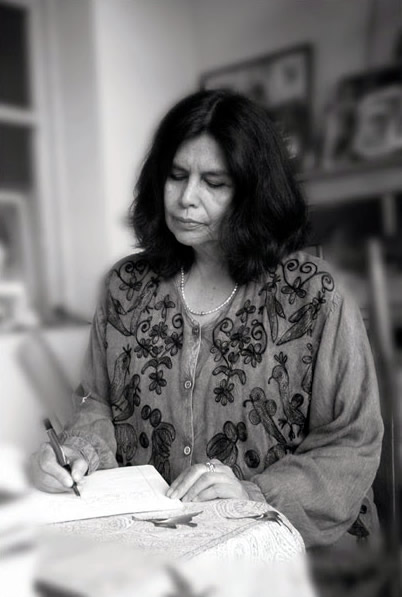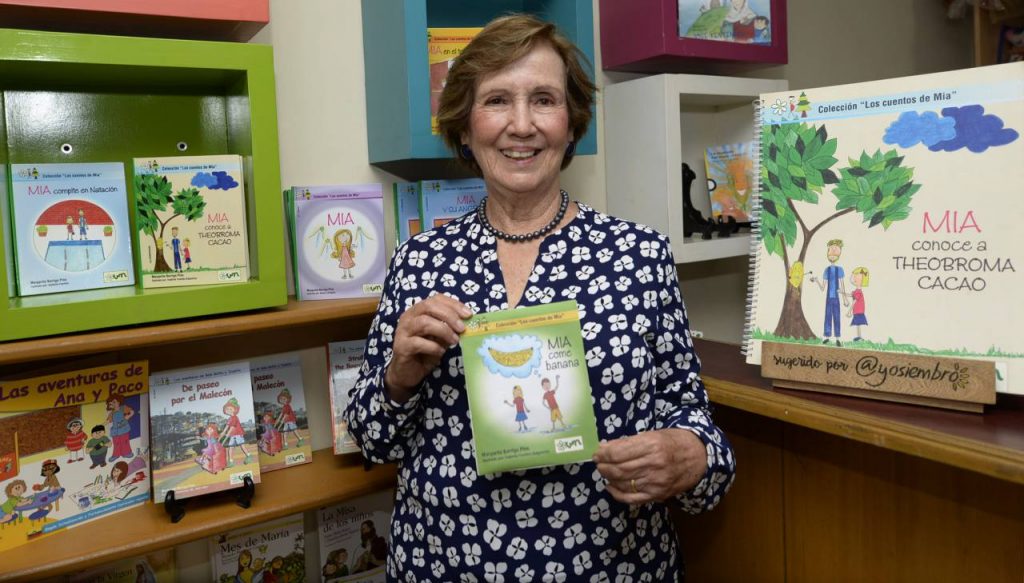Natasha Salguero Bravo (Quito, October 2, 1952) is a prominent Ecuadorian novelist, poet, journalist, and nonfiction writer. In 1989, she became the first woman to win the prestigious Aurelio Espinosa Pólit National Literature Prize for her novel Azulinaciones, which she submitted to the contest under a male pseudonym. That same year, she won the Gabriela Mistral Poetry Prize. Her work, known for exploring themes of feminism, social decay, and political repression, has been widely translated and featured in international anthologies, establishing her as a leading voice in Ecuadorian literature.
Early Life and Education
Natasha Salguero Bravo was born on October 2, 1952, in Quito, Ecuador, into a culturally rich family. Her father, Sixto Salguero Venegas, was a theater actor, and her mother, María Virginia Bravo Arauz, was a history and geography teacher. Growing up in an environment filled with books and artistic expression, Salguero developed a deep passion for literature and performance from a young age. As a child, she often participated in theatrical productions, particularly influenced by her father’s love of Shakespeare. She studied at the Colegio Americano de Quito, excelling in both mathematics and writing. Although initially drawn to subjects like architecture and physics, she pursued a degree in Journalism and Fine Arts at the Universidad Central del Ecuador, graduating in 1973.
Literary Career
Natasha Salguero began her writing career in the late 1970s, exploring various genres including poetry, essays, and fiction. Her early works, such as the poetry collection Heréticos y eróticos (1985), established her as a bold voice in Ecuadorian literature. However, her breakthrough came in 1989 with the novel Azulinaciones, which won the prestigious Aurelio Espinosa Pólit National Literature Prize. Salguero submitted the novel under the male pseudonym “Félix,” becoming the first woman to win the award. Azulinaciones is a daring exploration of themes like feminism, societal decay, and youth culture, using a rich, experimental narrative style.
In the same year, she received the Gabriela Mistral Poetry Prize for her contributions to Ecuadorian literature. Throughout the 1990s and 2000s, Salguero published several more works, including Mujeres en torno a un ataúd (1992), a critical exploration of gender and indigenous leadership, co-authored with Emma Cervone and Lucía Chiriboga, and Nace una danza (2002), a reflective work on dance in 1970s Ecuador.
Personal Life
Since 1974, Natasha Salguero has been married to Wilson Pico, a renowned ballet dancer and theater actor. Together, they have two children. The couple has collaborated on various artistic projects, with Salguero contributing to Pico’s performances as a lighting and stage designer during his tours. In the early years of their marriage, Salguero and Pico traveled extensively across Latin America and the United States, with Salguero playing a crucial role in promoting Ecuadorian dance and theater on the international stage.
Literary Style and Influences
Natasha Salguero’s writing reflects a strong influence from both classical and modern literary figures. Among her inspirations are Rabindranath Tagore, Charles Dickens, and Marguerite Yourcenar, as well as Ecuadorian writers like José de la Cuadra and Jorge Icaza. Her work often grapples with complex social issues such as feminism, political repression, and cultural identity, using both lyrical and narrative forms. Salguero’s writing style is known for its linguistic experimentation, blending colloquial speech with intertextual references, particularly in Azulinaciones.
Legacy and Recognitions
Salguero is regarded as one of the most significant voices in contemporary Ecuadorian literature. In addition to the Aurelio Espinosa Pólit and Gabriela Mistral awards, she was honored in 2006 with a special literary merit award from the National Union of Journalists. Her works have been translated into English, Italian, and Hebrew, and her poetry has been included in numerous international anthologies. Salguero has also been active in promoting cultural initiatives, serving as the President of the Ecuadorian Society of Writers from 2007 to 2009.
Works
Prose
- 1989: Azulinaciones.
- 1992: Mujeres en torno a un ataúd.
- 1998: Mujeres contracorriente : voces de líderes indígenas. Co-written by Emma Cervone and Lucía Chiriboga
- 2002: Nace una danza : una mirada a la danza en los años setenta en el Ecuador.
- 2012: Canción de amor que se anida en mi pecho 23.
Poetry
- 1985: Heréticos y eróticos.
- 1992: Cantos.
- 2001: Nave palabra 24.
- 2005: No me digas que me amas25.
- 2011: Jaula de signos 24.
- 2013: Viaje: Mecánica y Pasión de los Objetos. Junto a María Ángeles Pérez López.
Nonfiction
- 2007: Wilson Pico 40 años en escena.
- “Natasha Salguero.” Wikipedia (Spanish). Retrieved September 27, 2024.
- Goodreads page for Azulinaciones. Retrieved September 27, 2024.
- Author profile on El Ángel Editor. Retrieved September 27, 2024.
- Biography of Natasha Salguero on the site of Rodolfo Pérez Pimentel. Retrieved September 27, 2024.
- “La escritora Natasha Salguero anhela volver a publicar.” Revista Bagre. Retrieved September 27, 2024.



